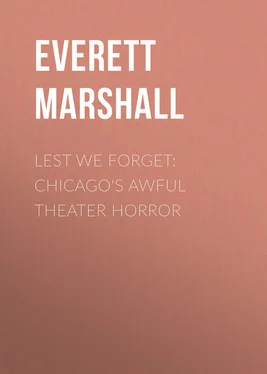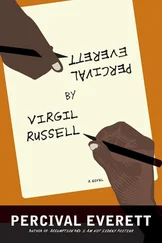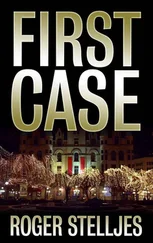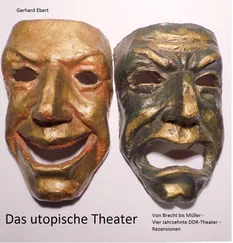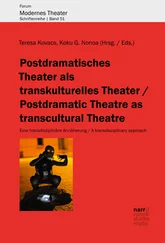Marshall Everett - Lest We Forget - Chicago's Awful Theater Horror
Здесь есть возможность читать онлайн «Marshall Everett - Lest We Forget - Chicago's Awful Theater Horror» — ознакомительный отрывок электронной книги совершенно бесплатно, а после прочтения отрывка купить полную версию. В некоторых случаях можно слушать аудио, скачать через торрент в формате fb2 и присутствует краткое содержание. Издательство: Иностранный паблик, Жанр: foreign_antique, foreign_prose, на английском языке. Описание произведения, (предисловие) а так же отзывы посетителей доступны на портале библиотеки ЛибКат.
- Название:Lest We Forget: Chicago's Awful Theater Horror
- Автор:
- Издательство:Иностранный паблик
- Жанр:
- Год:неизвестен
- ISBN:нет данных
- Рейтинг книги:3 / 5. Голосов: 1
-
Избранное:Добавить в избранное
- Отзывы:
-
Ваша оценка:
- 60
- 1
- 2
- 3
- 4
- 5
Lest We Forget: Chicago's Awful Theater Horror: краткое содержание, описание и аннотация
Предлагаем к чтению аннотацию, описание, краткое содержание или предисловие (зависит от того, что написал сам автор книги «Lest We Forget: Chicago's Awful Theater Horror»). Если вы не нашли необходимую информацию о книге — напишите в комментариях, мы постараемся отыскать её.
Lest We Forget: Chicago's Awful Theater Horror — читать онлайн ознакомительный отрывок
Ниже представлен текст книги, разбитый по страницам. Система сохранения места последней прочитанной страницы, позволяет с удобством читать онлайн бесплатно книгу «Lest We Forget: Chicago's Awful Theater Horror», без необходимости каждый раз заново искать на чём Вы остановились. Поставьте закладку, и сможете в любой момент перейти на страницу, на которой закончили чтение.
Интервал:
Закладка:
In a second the woman was undergoing resuscitative treatment on a table, while the oxygen streamed into her lungs. Two doctors worked her arms like pumps, while a nurse manipulated the region of the heart. At length there was a flutter of a respiration, while a doctor bending over with his stethoscope announced a heart beat just perceptible. Another minute passed and the eyelids moved, while a groan escaped the lips.
"She lives!" simply said Dr. Vaughan, as he ordered the oxygen tube removed and brandy forced between the lips. In five minutes the woman was saved from immediate death, at least, though suffering terribly from burns. She was just able to murmur that her name was Mrs. Harbaugh, but that was all that could be learned of her identity before she was taken away to a hospital.
Over a narrow, ice covered bridge made of scaffold planks, more than 100 feet above the ground the police carried more than 100 bodies from the rear stage and balcony exits of the Iroquois theater to the Northwestern University building, formerly the Tremont house. The planks rested on the fire escape of the theater and on the ledge of a window in the Tremont building.
Two men who first ventured on this dangerous passageway in their efforts to reach safety, blinded by the fire and smoke, lost their footing and fell to the alley below. They were dead when picked up.
The bridge led directly into the dental school of the university, and at one time there were more than a score of charred bodies lying under blankets in the room. The dead were carried from the pile of bodies at the theater exits faster than the police could take them away in the ambulances and patrol wagons.
As soon as the police began to take the injured into the university building the classrooms were drawn upon for physicians, and in a few minutes professors and dental students gathered in the offices and stores to lend their assistance. Wounds were dressed, and in cases of less serious injury the unfortunates were sent to their homes. In other cases they were sent to hospitals.
When the smoke had cleared away the rescuers first realized the extent of the horror. From the bridge could be seen the rows of balcony and gallery seats, many occupied by a human form. Incited by the sight, the police redoubled their efforts, and heedless of the dangers of the narrow, slippery bridge, pressed close to each other as they worked.
While a dozen policemen were removing the dead from the theater, twice as many were engaged in carrying them to the patrol wagons and ambulances at the doors of the university building. All the afternoon the elevators carried down police in twos and fours carrying their burdens of dead in blankets. So fast were they carried down that many of the patrol wagons held five and more bodies when they were driven away.
Behind the lines of police that guarded the passage of the dead, hundreds of anxious men and women crowded with eager questions. The rotunda of the building between 3 and 7 p. m. was thronged by those seeking knowledge of friend or relative who had been in the play. Some made their way to the third floor and looked hopelessly at the charred bodies lying there. In one corner lay the bodies of husband and wife, clasped in each other's arms. From under one sheltering blanket protruded the dainty high heeled shoes of some woman, and from the next blanket the rubber boots of a newsboy.
A Roman Catholic priest made his way into the room. He was looking for a little girl, the daughter of a parishioner.
"Have you the name of Lillian Doerr in your list?" he asked James Markham, Chief O'Neill's secretary, who was in charge of the police. Markham shook his head.
"She and another little girl named Weiskopp were with three other girls," continued the priest. "Three of the girls in the party have got home, but Lillian and the Weiskopp girl are missing. I suppose we must wait until all the bodies are identified before we can find her."
The priest's mission and its futile results were duplicated scores of times by anxious inquirers.
The rescue work went on until the balcony and gallery had been cleared of the dead, and then the police were called away. The exits were barred and the hotel building cleared of visitors. While the work of rescue was going on inside the building, the streets about the entrances were thronged with thousands of curious spectators. As soon as an ambulance backed up to the entrance the crowd pressed forward to get a view of the bundles placed in the wagon. Even after this work had ended the crowds remained in the cold and darkness.
Many of the small shops and offices in the University building threw open their doors to the injured and those who had been separated from their friends. When those who had escaped by the alley exits reached Dearborn street they found the doors of the Hallwood Cash Register offices, 41 Dearborn street, open to them. L. A. Weismann, Harry Snow, Harry Dewitt, and C. J. Burnett of the office force at once prepared to care for the injured. More than fifty persons were cared for.
While these men were caring for strangers they themselves were haunted by the dread that Manager H. Ludwig of the company with his wife and two daughters were among the dead. The Ludwig family lives in Norwood Park, and the father had left the office with them early in the afternoon. At 6 o'clock he had not returned for his overcoat.
"Spare no expense," was the order given by the finance committee of the council which was in session when the extent of the disaster became known at the city hall. First to grasp the import of the news was Ald. Raynier, whose wife and four children had left him at noon to attend the matinee. With a gasp he hurried from the room to go to the scene.
"You are instructed," said Chairman Mavor to Acting Mayor McGann, "to direct the fire marshal, the chief of police, and the commissioner of public works to proceed in this emergency without any restrictions as to expense. Do everything needful, spend all the money needed, and look to the council for your warrant. We will be your authority."
A telegram at once was sent to Mayor Harrison informing him of the fire and the executive returned from Oklahoma on the first train.
Acting Commissioner of Public Works Brennan sent word to Chief O'Neill and Fire Marshal Musham that the public works department was at their service.
"We want men and lanterns," Chief Musham answered.
Supt. Solon was sent to a store near the theater with an order for as many lanterns as might be needed. Supt. Doherty assembled 150 men in Randolph street and seventy wagons employed on First ward streets. They were placed at the disposal of the two chiefs.
Chief O'Neill was in the council chamber when the news arrived, hearing charges against a police officer. Lieut. Beaubien came from his office and whispered to him. The chief hurried to the fire. The trial board continued its work.
On the ground floor of the city hall the fire trial board was in executive session trying six firemen on a charge of carrying tales to insurance men against the chief.
At 3:33 o'clock the alarm rang. Chief, assistant chiefs, and accused firemen listened. Then the news of the magnitude of the fire reached headquarters. The board hurriedly adjourned and Chief Musham led accusers and accused to fight the fire.
CHAPTER III.
TAKING AWAY AND IDENTIFYING THE DEAD
In drays and delivery wagons they carried the dead away from the Iroquois theater ruins. The sidewalk in front of the playhouse and Thompson's restaurant was completely filled with dead bodies, when it was realized that the patrol wagons and ambulances could not remove the bodies.
Читать дальшеИнтервал:
Закладка:
Похожие книги на «Lest We Forget: Chicago's Awful Theater Horror»
Представляем Вашему вниманию похожие книги на «Lest We Forget: Chicago's Awful Theater Horror» списком для выбора. Мы отобрали схожую по названию и смыслу литературу в надежде предоставить читателям больше вариантов отыскать новые, интересные, ещё непрочитанные произведения.
Обсуждение, отзывы о книге «Lest We Forget: Chicago's Awful Theater Horror» и просто собственные мнения читателей. Оставьте ваши комментарии, напишите, что Вы думаете о произведении, его смысле или главных героях. Укажите что конкретно понравилось, а что нет, и почему Вы так считаете.
